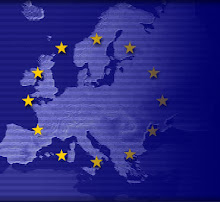Age of Anxiety (1914-1950)
I. Old Order gone in much of Europe by the end of WWI - old dynasties already gone
a. New democracies – Germany (Weimar Republik) and Czechoslovakia
b. Not all of Europe will go for democracy (Russia, Italy [fascism, a decade before it comes to Germany, 1922]) – this is part of the anxiety people are feeling
c. WWI was a staggering blow to western civilization, so many people killed, regimes overturned, instability, people will begin living in perpetual crisis, which won’t stop until the 50’s – war revolutions, Great Depression, WWII, Cold War
d. WWI ended peoples beliefs in human nature being good and enlightened, optimism was destroyed
II. Modern Philosophy
a. Nietzsche had a resurgence after WWI (died in 1900) Thus Spake Zarathustra (1883-85) – very pessimistic and therefore not liked in the 19th Century, criticizing the enlightenment, claimed God is dead, individual had been squashed by society à helped breed fascism. Will to Power – (1888) – writes about the Ubermensch – the creativity of a handful of uebermenschen could change the world, so people like Hitler and Mussolini will see themselves as the embodiment of this
b. Henri Bergson – the intuition is as important as rational reasoning
c. Sorel – Syndicalism – kind of an anarchist – believed that socialism will come about by a great, violent strike
d. Freud- his theories seemed to explain some of the atrocities that happened in WWI
e. Valery – French Poet – talks about the cruelly injured mind
f. Logical Empiricism (logical positivism) – created by a German speaking Austrian Wittgenstein – at the heart of it there are no answers, it is only the logical clarification of thought
g. Anti-utopian – more [pessimistic] – Spengler – the decline of the West – every civilization has a life cycle and western civilization was in its old age – death was coming and the Asians were going to supplant it
h. T.S. Eliot “ The Waste Land” (1922) – it is considered the most famous long poem of the 20th century, depicting a world of growing desolation
i. Kafka – dies in 1924 – major works published post-mortem
j. Remarque – Im Westen Nichts Neues
k. Existentialism – Sartre and Camus – before and during WWII, becomes prevalent after WWII, puts the capper on anxiety
l. Orwell
m. Absurdum – artistic equivalent of existentialism
i. Samuel Beckett
ii. Ionesco – Rhinoceros
iii. Durrenmatt
III. Science- going to lay a foundation that will allow for great atrocities during WWII
a. Max Planck – lays the foundation for quantum physics (mass and energy are two forms of the same things)
b. Einstein – Theory of Relativity – the universe is infinite – there might not be any real meaning because the things we thought were absolute weren’t necessarily (matter and energy =A-Bomb)
c. Rutherford (dies in 1937) – proves that you can split atoms and that they have a nucleus
d. Heisenberg – the more you of a particles velocity and direction, the less you know where it is – the uncertainty principle
e. All of this give credence to the philosophy that the world is uncertain and there are no easy answers

No comments:
Post a Comment